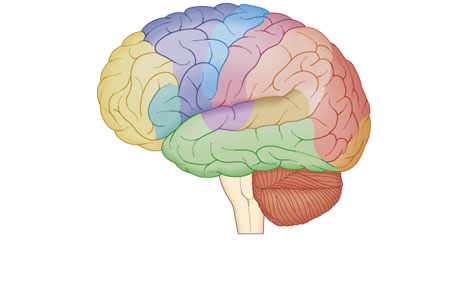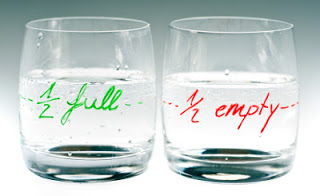Studying personalities is important to me. I’ve reviewed the results of many personality assessments and am a proponent of using assessment results if it helps you or who you are working with move forward in positive ways. One of the main personality dispositions is whether you are optimistic or pessimistic. (Which are you?)
You can go to The Big Five Project, where you can take a personality assessment for free.
I’ve studied optimism and after reading the March 25, 2012 TIME magazine article titled The Science of Optimism ~ Hope Isn’t Rationale, so why are humans wired for it?” written by Tali Sharot, I’ve learned more. Sharot is a research fellow at University College London’s Wellcome Trust Centre for Neuroimaging. She searches for the places in the brain where optimism lives!
In her work, she’s interested in how our natural optimism actually shapes what we remember. In one of her studies on optimism, using fMRI (functional magnetic resonance imaging) the areas of the brain shown to light up are found in the prefrontal cortex (responsible for planning and goal setting), hippocampus (crucial to memory), amygalda (my favorite emotional processing almond!), the rostral anterior cingulate cortex (boost the flow of positive emotions) and caudate (processes rewards).
 All this brain activity is involved in self-reflection and recollection!
All this brain activity is involved in self-reflection and recollection!
I’ll apply her knowledge that our brains are biased towards optimism. She has a great Ted talk on The Optimism bias that helps me to better understand and work with my clientele, evaluees, referral sources like attorneys, insurance representatives, and the entire array of people encountered in the process of rehabilitation counseling. See the optimists and pessimists lining up?
As part of my ongoing continuing educational pursuits in my beloved career, I promise to continue to study personality and use it to help me to read others and to ultimately help you, my client, with your case.
It definitely helps me in my forensic work to seek information about whether a person is an optimist or a pessimist, and then identify if that person can strike a balance. Why is this important to me? Because it shows the person is flexible! What a great attribute to have as our world constantly changes!
Every time I study others my skills improve!
….helping me to make more valid and reasonable assessments of persons, places and situations that need to be brought to light. Of course, even the best detective or mind reader is not always right on track each time they do an assessment. It takes continually gathering knowledge of others, practice, practice and more practice (while myself remaining optimistic yet neutral) to effectively and without bias counsel and teach others.
I’m told I’m often overly optimistic and overly analytical. Really I’m just sucking up as much information as possible during whatever time is available and I don’t want to miss anything that may make a difference. Therefore, I need to balance my construct of optimism depending on the situation and have an alternative plan to avoid being unrealistic or irrational. A small dose of realism or even pessimism might be the best prescription to achieve my consulting goals.
Sharot writes, “True sometimes we regret our decisions; our choices can turn out to be disappointing. But on balance, when you make a decision ~ even if it is a hypothetical choice ~ you will value it more and expect it to bring you more pleasure.”
I believe this to be part of my mantra when on the stand and knowing my testimony is based on decision making processes that I chose to undertake, and the hope that I am making a difference in the lives of others.
Hope is an emotional state. Optimism is a cognitive process.
Click here for a great short take written by a monsignor on Hope Versus Optimism
I hope you enjoy it. If you’re not able to view it let me know and I’ll send it to you.
My attorney reader I look forward to helping you help your client! Thank you for reading my post. The links are meant to help you to learn more about me and how I approach my consulting work! Contact me at 515-778-0634 or amyebotkin@lcpresourcesplus.com
___________________
My professional rehabilitation counseling practice is focused on helping people participate in the world around them, particularly in their own world of work.


1 comment